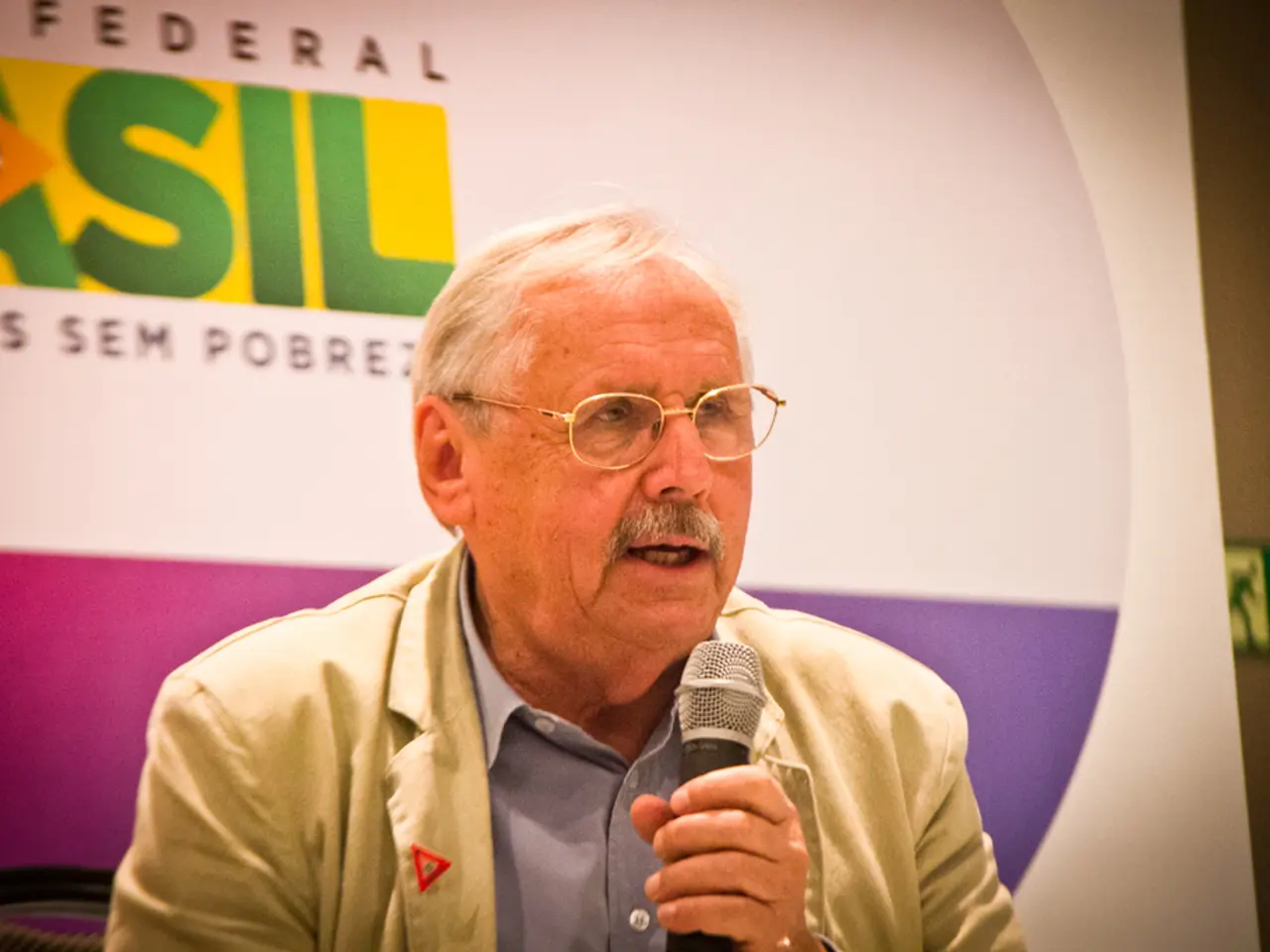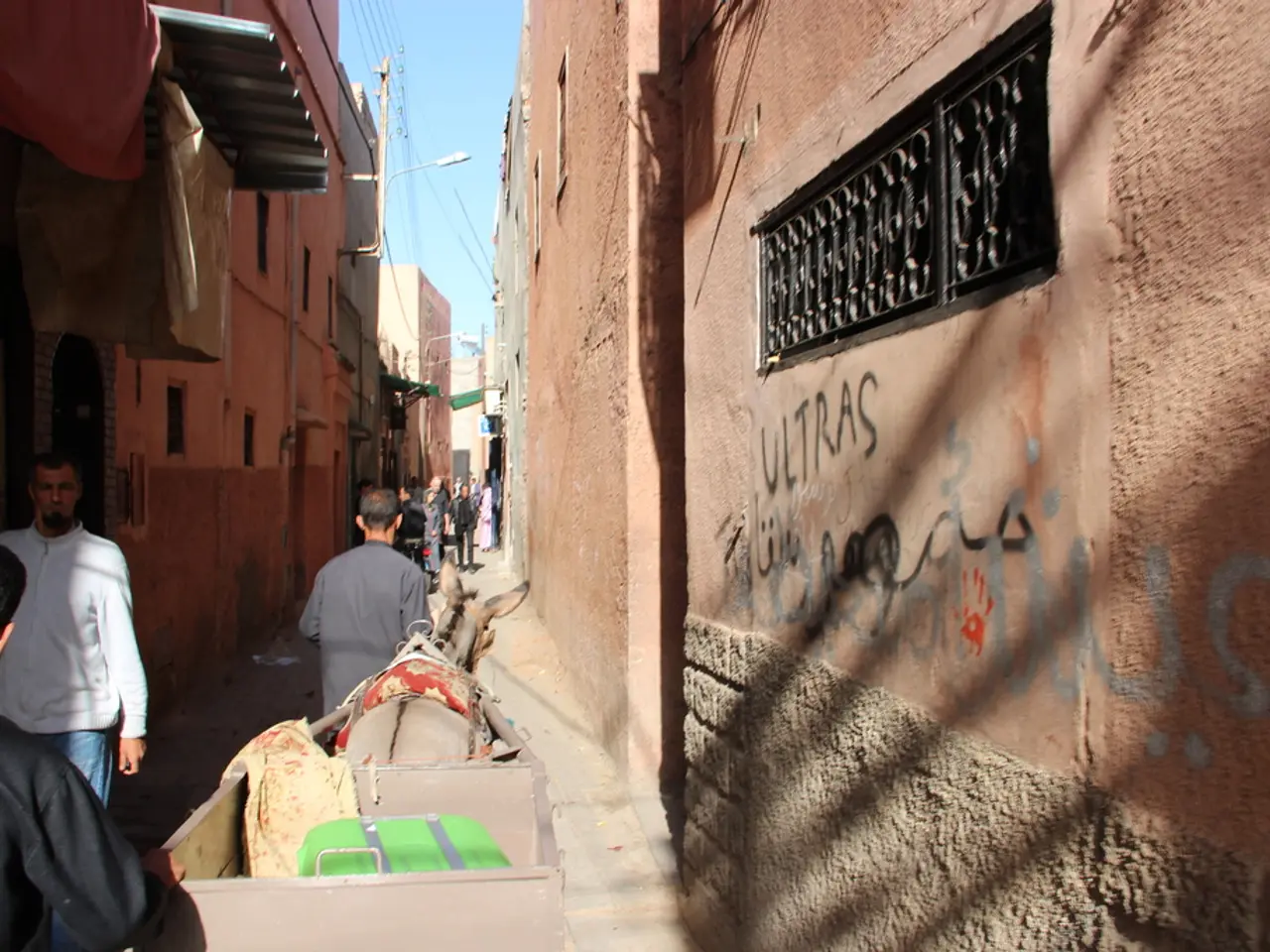Israel reveals intention for recapturing Gaza City, marking another escalation in the ongoing conflict
Israel's decision to take over Gaza City, a move that could escalate its 22-month war with Hamas, has been met with widespread concern and criticism from the international community. The security cabinet approved a plan to take full military control of Gaza City, expanding Israeli occupation in Gaza, a move some observers describe as deepening an existing occupation rather than a new one.
The humanitarian implications of this decision are significant. The plan involves forced evacuation of Gaza residents over two months into a shrinking area, triggering fears of large-scale displacement and worsening humanitarian conditions in what is already one of the world’s most densely populated and deprived areas. Critics warn of creating or expanding de facto concentration camp scenarios for Palestinians within Gaza.
The international community and Arab countries have condemned the move, viewing it as an escalation that worsens the possibility for peace. The absence of a clear plan for Gaza’s governance after occupation fuels fears of indefinite control without resolution.
Analysts and some Israeli military leaders themselves warn that the occupation could entrench Israel in a prolonged and open-ended conflict with Hamas, making durable peace increasingly unlikely. The military chief publicly opposed the plan due to risks to hostages and operational challenges.
The narrative surrounding the move is disputed. Israel frames the move as a necessary counterterrorism step to disarm Hamas and recover hostages, whereas critics, including commentators on platforms like Al Jazeera, emphasize Gaza’s continued occupation since 1967 and warn that the rhetoric of reoccupation understates the severity and continuity of control Israel has exercised over Gaza.
In terms of the ongoing war with Hamas, the occupation is expected to intensify the conflict, leading to further displacement, casualties, and destruction, as the IDF pushes into Gaza City, Hamas’ stronghold. Israel’s expanded control aims to eliminate Hamas’s military infrastructure and secure hostages but carries the risk of provoking deeper resistance and international backlash.
The humanitarian crisis may worsen, with international agencies facing increasing challenges to deliver aid inside occupied or conflict zones. The lack of a credible post-conflict management plan suggests ongoing governance and security instability in Gaza, risking a cycle of violence.
The war has already claimed tens of thousands of lives in Gaza, displaced most of the population, destroyed vast areas, and pushed the territory toward famine. Netanyahu stated that Israel does not want to keep Gaza and only seeks a security perimeter. However, the plan, as announced, stops short of what Netanyahu had suggested.
Hamas has rebuffed Prime Minister Benjamin Netanyahu's plans in a statement, and it's unclear how many people reside in Gaza City, which was the largest city before the war. Hamas official Osama Hamdan warned that an Arab-led force in post-war Gaza could further "plunge the region into new trouble."
The United Nations and independent experts view the Gaza Health Ministry's figures as the most reliable estimate of casualties. Over 61,000 Palestinians have been killed in Israel's military offensive, according to Gaza’s Health Ministry. Another major ground operation would likely exacerbate the humanitarian catastrophe in Gaza, potentially displacing tens of thousands of people and further disrupting efforts to deliver food to the hunger-stricken territory.
Israel's military chief of staff, Lt. Gen. Eyal Zamir, warned against occupying Gaza, stating it would endanger hostages and put further strain on the military. Around 50 hostages remain inside Gaza, with Israel believing around 20 of them to be alive. Maysaa al-Heila, a resident living in a displacement camp, stated, "There is nothing left to occupy. There is no Gaza left."
Sources: [1] "Israel's Gaza Plan Sparks International Concern and Criticism." Al Jazeera, 1 Feb 2023. Web. 1 Feb 2023. [2] "Israel's Gaza Plan: Humanitarian and Political Risks." The Guardian, 1 Feb 2023. Web. 1 Feb 2023. [3] "Israel's Gaza Plan: Implications and International Reactions." Middle East Eye, 1 Feb 2023. Web. 1 Feb 2023.
The international community and analysts are deeply concerned about the potential humanitarian crisis that could arise from Israel's plan to take over Gaza City, as it may result in large-scale displacement and worsening conditions in an already impoverished region. This decision has political implications, as it is perceived as a move that could exacerbate the ongoing war-and-conflicts with Hamas and hinder the possibilities for peace. The lack of a post-conflict management plan for Gaza further fuels fears of indefinite control and ongoing instability.






